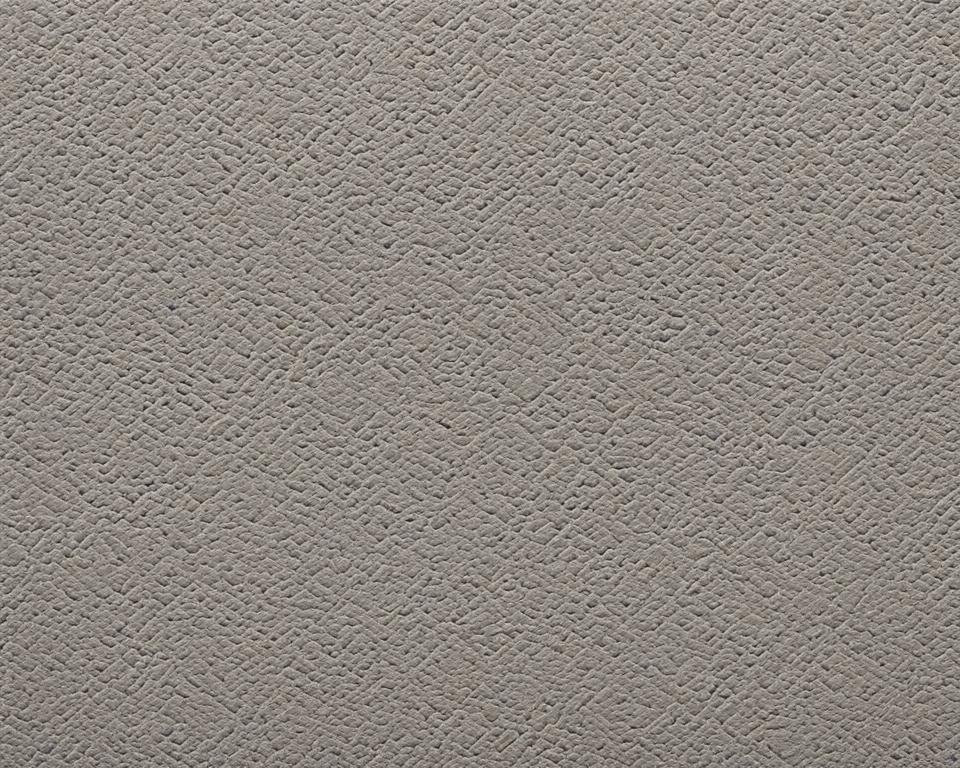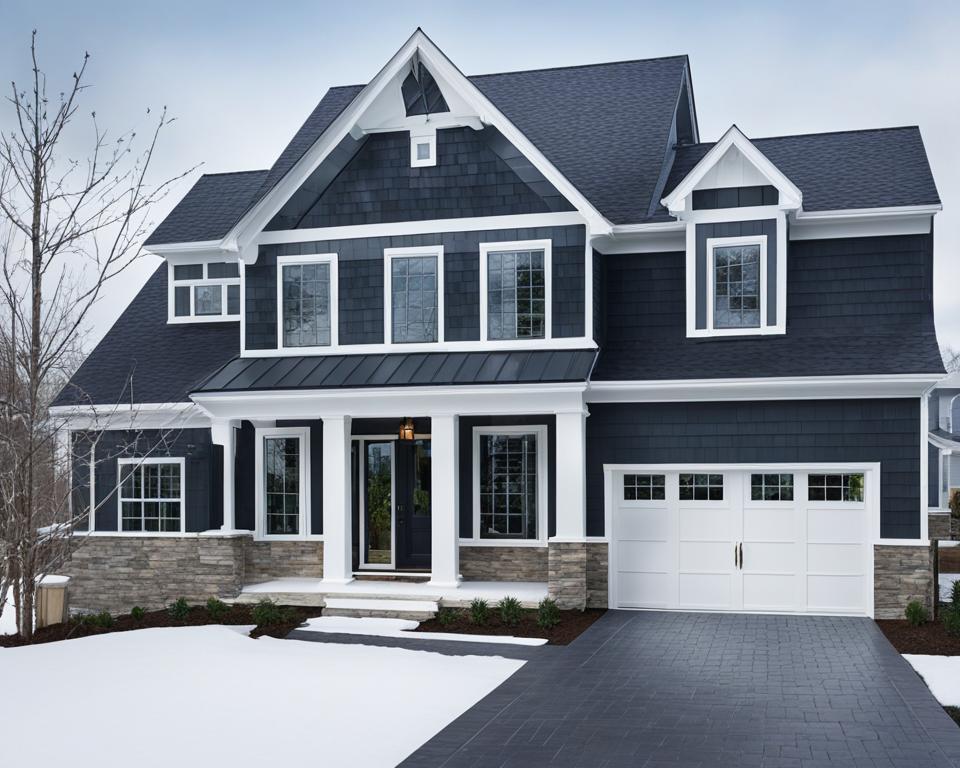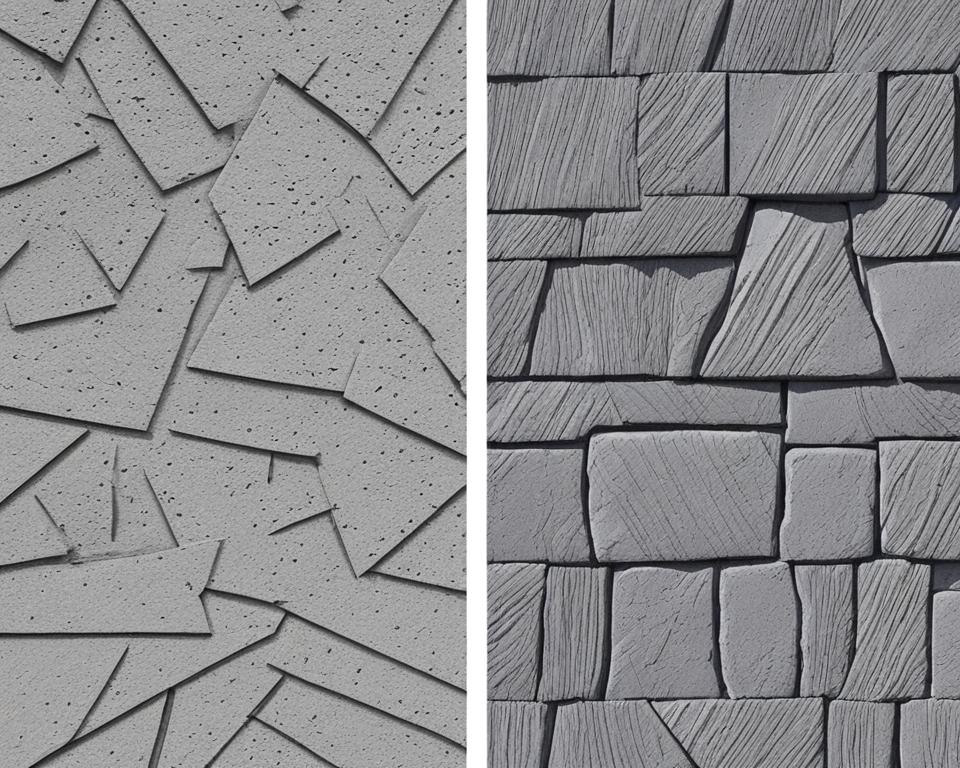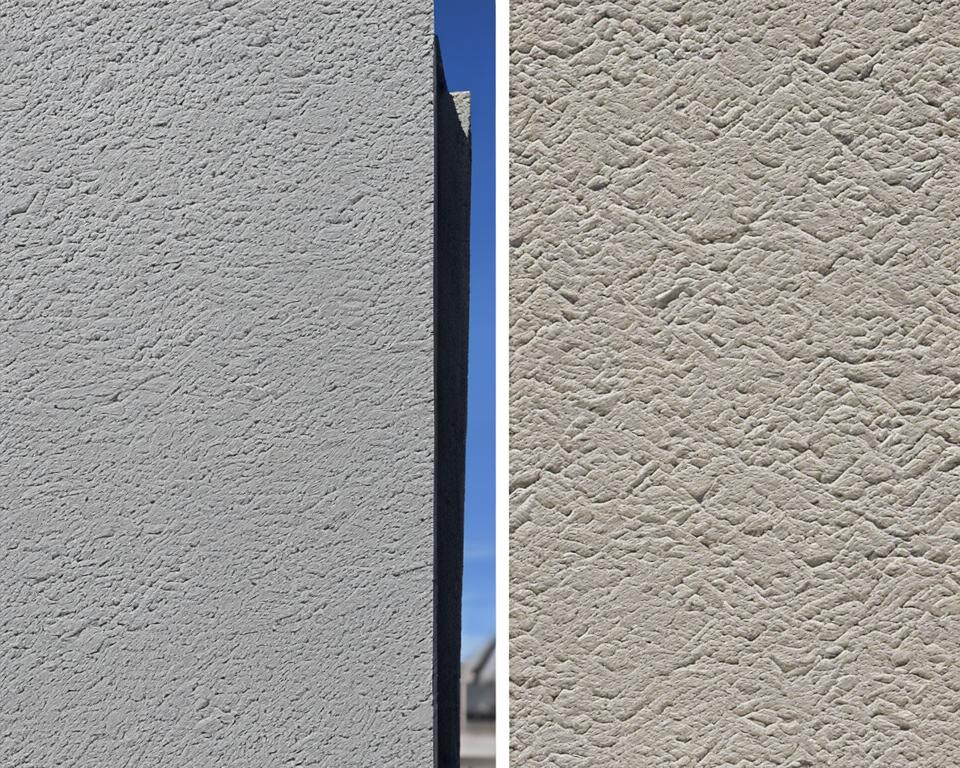When it comes to home renovations, it’s important to choose the right materials for the job. Cement board and Hardie board are two popular options for projects like tiling and siding. In this comprehensive comparison guide, we’ll explore the key differences in durability, cost, and benefits between cement board and Hardie board.
Key Takeaways:
- Cement board and Hardie board are durable materials commonly used for walls and floors.
- Cement board is made from inorganic materials and is known for its impact resistance and strength.
- Hardie board is a type of cement board made from a blend of Portland cement and sand, reinforced with fiberglass mesh.
- Both materials offer long-term value due to their durability and resistance to moisture and rot.
- Cement board is more expensive than Hardie board, but both have their unique advantages and applications.
What is Cement Board?
Cement board is a durable material commonly used for walls and floors. It is made from inorganic materials such as cement, fiberglass, or limestone flour, which makes it resistant to rot and decomposition. Cement board is known for its impact resistance and strength, and it is often used in high-moisture environments due to its waterproof properties.
There are different types of cement board available, such as Durock, HardieBacker, and Wonderboard, each with its own unique qualities and applications.
“Cement board is a versatile material that offers several advantages for various construction projects. Its strength and durability make it an ideal choice for walls and floors, especially in areas that are exposed to moisture. Additionally, cement board is an excellent substrate for tile installation due to its stability and resistance to movement.”
Cement board features include:
- Resistance to rot and decomposition
- Impact resistance
- Waterproof properties
- High-moisture environment suitability
Some advantages of using cement board include:
- Strength and durability
- Stability for tile installation
- Resistance to movement

In the next section, we’ll explore the characteristics and benefits of Hardie board, another popular alternative to cement board.
What is Hardie Board?
Hardie board, also known as HardieBacker, is a type of cement board that is highly popular in the construction industry. It is made from a blend of Portland cement and sand, and it is reinforced with fiberglass mesh. Hardie board is lightweight yet strong, making it easy to install and resistant to damage. It is a versatile material that can be used for both interior and exterior applications, and it is particularly well-suited for tile installation. Hardie board is known for its durability, moisture resistance, and ability to withstand heavy loads.
If you’re considering using Hardie board for your next project, here are some key benefits:
- Strong and durable: Hardie board is known for its strength and long-lasting performance. It can withstand extreme weather conditions and is resistant to warping, rotting, and insect damage.
- Moisture resistance: Hardie board is impervious to water, making it an excellent choice for areas prone to high humidity or moisture, such as bathrooms and kitchens.
- Easy to install: Thanks to its lightweight design, Hardie board is easy to handle and install. It can be cut and shaped with standard tools, allowing for precise and seamless installations.
- Versatile: Whether you’re looking to install tile, siding, or backer board, Hardie board is a versatile material that can be used for various applications. Its strength and stability make it an ideal choice for a wide range of projects.
When compared to other cement board options, Hardie board stands out for its exceptional quality and performance. Its combination of strength, durability, and moisture resistance makes it a top choice for contractors and homeowners alike.

Cement Board vs Hardie Board: A Comparison
When comparing cement board and Hardie board, there are several factors to consider. Let’s take a closer look at the cost, suitability for siding, and durability of these two materials.
Cost Comparison
Cost-wise, cement board is generally more expensive than Hardie board. While Hardie board is known for its affordability, cement board offers long-term value due to its durability and resistance to moisture and rot. Considering the cost in relation to the desired lifespan of the project is crucial to make an informed decision.
Suitability for Siding
Both cement board and Hardie board are commonly used as siding materials for residential and commercial buildings. Cement board siding offers excellent durability and resistance to weather conditions, making it a reliable choice for long-lasting protection. Hardie board, on the other hand, is lightweight and easy to install, making it a popular option for siding projects.
| Factors | Cement Board | Hardie Board |
|---|---|---|
| Cost | Generally more expensive | Relatively affordable |
| Suitability for Siding | Durable and weather-resistant | Lightweight and easy to install |
| Durability | Highly durable and resistant to moisture and rot | Durable and moisture-resistant |
Durability
Both cement board and Hardie board are known for their durability. Cement board is highly resistant to moisture and rot, making it an ideal choice for areas prone to high humidity or frequent water exposure. Hardie board, with its blend of cement and sand, offers durability and moisture resistance, making it suitable for various applications.

Overall, when it comes to the cost, siding suitability, and durability, both cement board and Hardie board have their advantages. The final choice will depend on the specific requirements of the project, budget considerations, and personal preferences.
Conclusion
In conclusion, when choosing between cement board and Hardie board, it is essential to consider the specific needs of your project. Both materials offer unique advantages and are suitable for various applications.
Cement board is highly regarded for its strength and exceptional moisture resistance, making it the ideal choice for high-moisture areas such as bathrooms and decks. Its durability and resistance to rot make it a reliable option for long-lasting installations.
On the other hand, Hardie board stands out for its lightweight composition and ease of installation. It is particularly popular for tile installation and siding projects, where its strength and ability to withstand heavy loads are highly valued.
Ultimately, the choice between cement board and Hardie board will depend on the specific requirements of your project, your budget, and personal preferences. Considering their respective features, benefits, and costs will ensure that you make an informed decision and achieve outstanding results for your home renovation or construction endeavor.
FAQ
What are the advantages of cement board?
Cement board is known for its strength, impact resistance, and moisture resistance, making it ideal for high-moisture areas like bathrooms and decks. It is also resistant to rot and decomposition.
What are the benefits of Hardie board?
Hardie board is lightweight, easy to install, and offers durability and moisture resistance. It is particularly well-suited for tile installation and siding projects.
Is cement board more expensive than Hardie board?
Yes, cement board is generally more expensive than Hardie board. However, both materials offer long-term value due to their durability and resistance to moisture and rot.
Can cement board and Hardie board be used for both interior and exterior applications?
Yes, both cement board and Hardie board are versatile materials that can be used for both interior and exterior applications.
Which type of board is better for tile installation?
Hardie board is particularly well-suited for tile installation due to its strength and ability to withstand heavy loads.
Are cement board and Hardie board waterproof?
Yes, both cement board and Hardie board have waterproof properties, making them suitable for high-moisture environments.
Which type of board is more resistant to impact?
Cement board is known for its impact resistance and strength, making it a durable choice for walls and floors.
